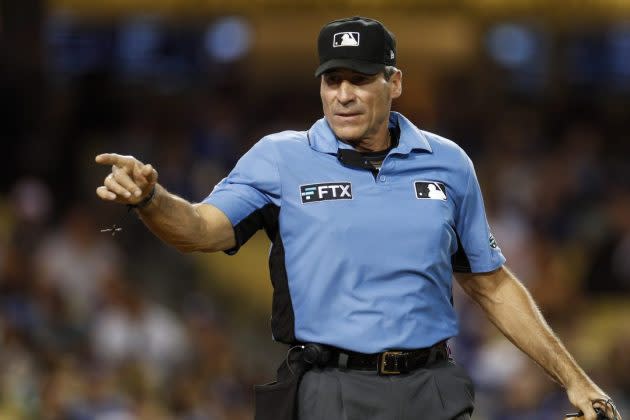FTX Crash Drags Brady, Curry and MLB as Sports Crypto Withdraws

Maybe Tom Brady really has lost his touch. While the Tampa Bay quarterback struggles through a 4-5 season, one of his most high-profile endorsers, cryptocurrency exchange platform FTX, unraveled in epic fashion this week. FTX filed for bankruptcy Friday, leaving Brady and some of the other biggest brands in sports to pick up the pieces.
Not long ago, FTX was one of the world’s largest crypto startups, valued at $32 billion (or roughly the value of every National League baseball team, combined). Its founder, 30-year-old MIT grad Sam Bankman-Fried, who became known as SBF, drew comparisons to the likes of Warren Buffet and John Pierpont Morgan.
More from Sportico.com
Inside FTX's Now-Shaky $135 Million Deal for Miami's NBA Arena
Crypto Sponsorship Cools as Industry and Leagues Plan for 2.0
Sporticast: Crypto Winter Hits Sports / NFL Punishment for Watson and Ross
FTX separated itself from competitors by establishing deep ties with Washington’s power players—and doing industry-shaking sports deals. Brady and Gisele Bündchen starred in a $20 million ad blitz last football season in exchange for an equity stake in the company. (Friday’s news likely means one less thing to worry about during divorce proceedings). But while that campaign sought to introduce FTX to a nation of football fans, sports execs were already well familiar with the brand.
In March 2021, FTX inked a 19-year, $135 million naming rights deal for the Miami Heat’s home—an agreement that has already paid out roughly $20 million. That August, FTX signed a $17.5 million stadium sponsorship deal for California Memorial Stadium in Berkeley. And in between, it bought a patch of real estate on every MLB umpire’s chest via a deal with the league. It also entered into agreements with the Golden State Warriors and Monumental Sports’ Washington Wizards and Capitals. Many of those deals were run through FTX’s supposedly distinct U.S. operation, though the American arm is among the approximately 130 related entities that will also undergo Chapter 11 proceedings.
Steph Curry, Shohei Ohtani and Naomi Osaka were among the other star athletes to sign FTX deals. As is now often the case, most of those agreements came with equity in the company—contracts that are likely now not worth the digital paper they were signed on.
For reasons that still remain somewhat opaque, the FTX unraveling took place over just a few days. On Sunday, users withdrew $5 billion from the exchange following reports that it, and an affiliated hedge fund, were on less than sure financial footing. By Thursday, FTX faced reports of a funding shortfall of as much as $8 billion following a failed attempt to get acquired by a competitor, and SBF announced the company would do “everything we can to raise liquidity.” Friday, he resigned.
Friday’s news likely precipitates the unwinding of all of FTX’s sports ventures. The Mercedes F1 team was first out of the gates, telling Motorsport.com that it was removing the company’s logos from its cars ahead of Sunday’s Brazilian GP.
This, of course, will be far from the first time a sports sponsorship deal has gone poof.
During the dot-com crash, numerous venues—Adelphia Coliseum in Nashville, PSINet Stadium in Baltimore—had to be renamed. More recently, Sports Authority Field and Chesapeake Energy Arena didn’t survive their contract terms.
“People have gone through this before and are smart about how they’re structuring these partnerships,” GMR Marketing executive vice president Todd Fischer said. “They’re going into these new categories with eyes wide open.”
Looking at crypto sponsorships specifically, the category was cooling before this week amid industry contraction. Even if, for some bizarre reason, a sports entity wanted to sign up a crypto sponsor amid this week’s tumult, they’d likely be hard pressed to find an established firm looking to grow its marketing spend.
Best of Sportico.com